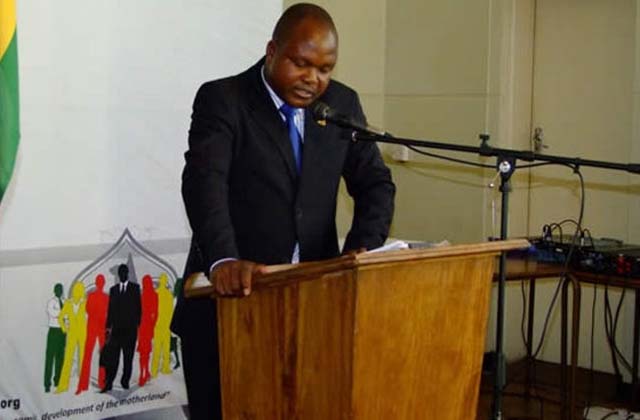Mutare Poly on track


Deputy Minister Gandawa
Liberty Dube Mutare Bureau
Mutare Polytechnic principal, Ms Poniso Watema, has said the college is in the right path of fulfilling the SADC Protocol advocating for improved skills relevant for the industry.
The college is increasing its visibility at national and international level through active participation in several reputable events.
The college participated in the Zanzibar Open Debate championship and Pan-African Debate Championships, all held in Zimbabwe, as well as the Southern African Regional Students and Youth Conference on Sexual and Reproductive Health rights held in South Africa.
Speaking at the college’s 28th graduation and prize giving ceremony last Friday, Ms Watema said: “Our presence in Zimbabwe as a training institution is something to be reckoned with as we continue to be the “pacesetter”.
“I am happy that the college is in the right path of fulfilling the SADC Protocol which advocates for improved skills relevant for the industry. As such, our graduates are fully-equipped and ready for the demands of the corporate world.”
Mutare Polytechnic has also embarked on staff development as it works towards transformation into a degree awarding institution.
“A total of seven staff members are on manpower development, five lecturers have enrolled for Masters’ degrees with various institutions, of these, two are pursuing their studies in South Korea, one is in Indonesia, while three are studying at local universities,” said Ms Watema.
Speaking at the same occasion, Deputy Minister of Higher and Tertiary Education, Science and Technology Development, Dr Godfrey Gandawa, said it was time for the ministry to reconfigure the skills and mandate in polytechnics by ensuring the production of engineering technologists who could transform ideas into patentable technologies.
He said industrial training colleges and vocational training centres around the country should equally be given newly-upgraded and reviewed mandates.
“Polytechnics have concentrated for some time on training low end skills, with the production mainly of artisans and technicians,” said Dr Gandawa.
“The artisan’s role has always been to repair, maintain, install and service machinery.
“In other words, they maintain technology imported from developed countries. In the absence of any scientific skills audit, it is safe to argue that a shift should be made to focus on the production of high end skills through the training and engineering technologists to ensure the adaptation, re-engineering and reverse engineering of imported technologies.”







Comments